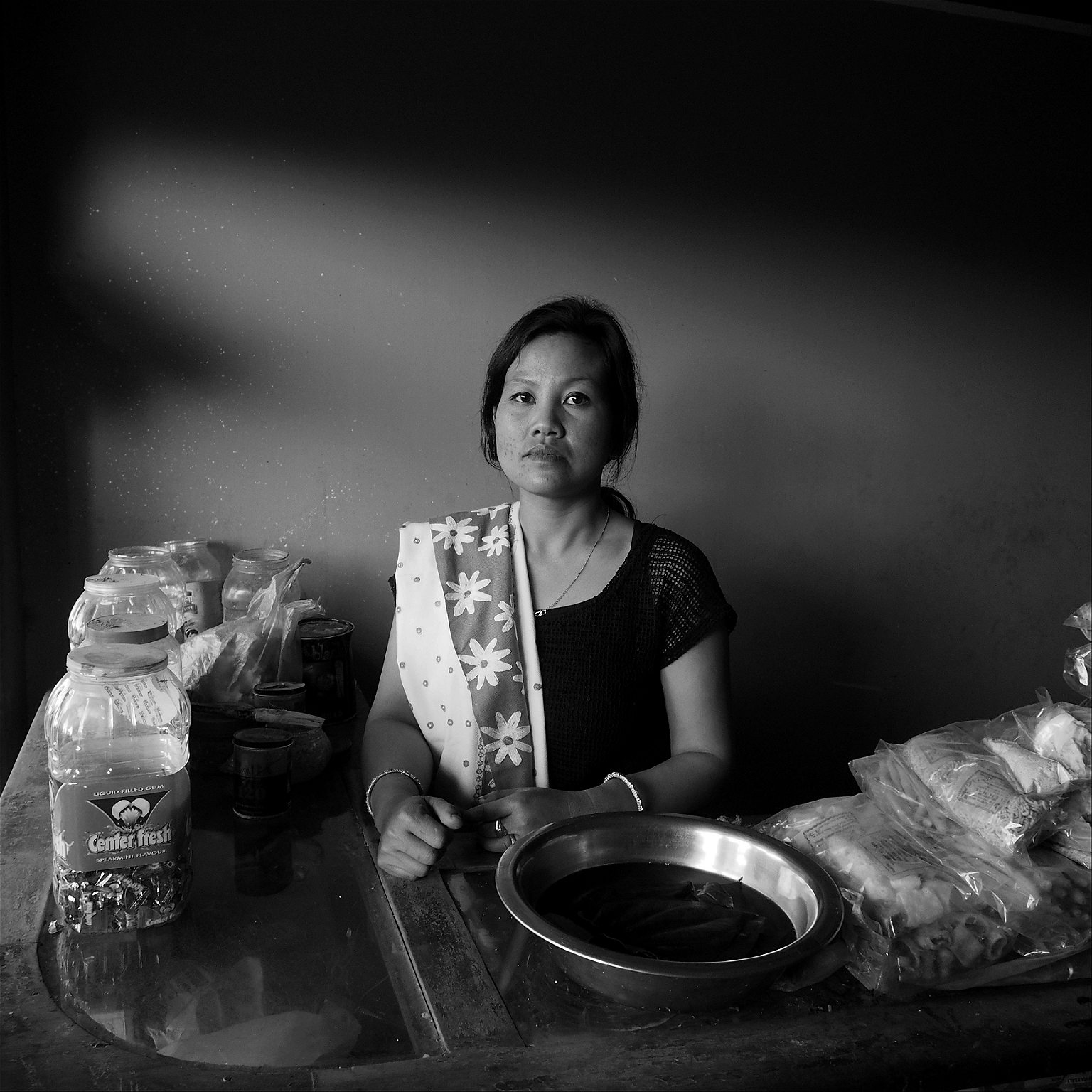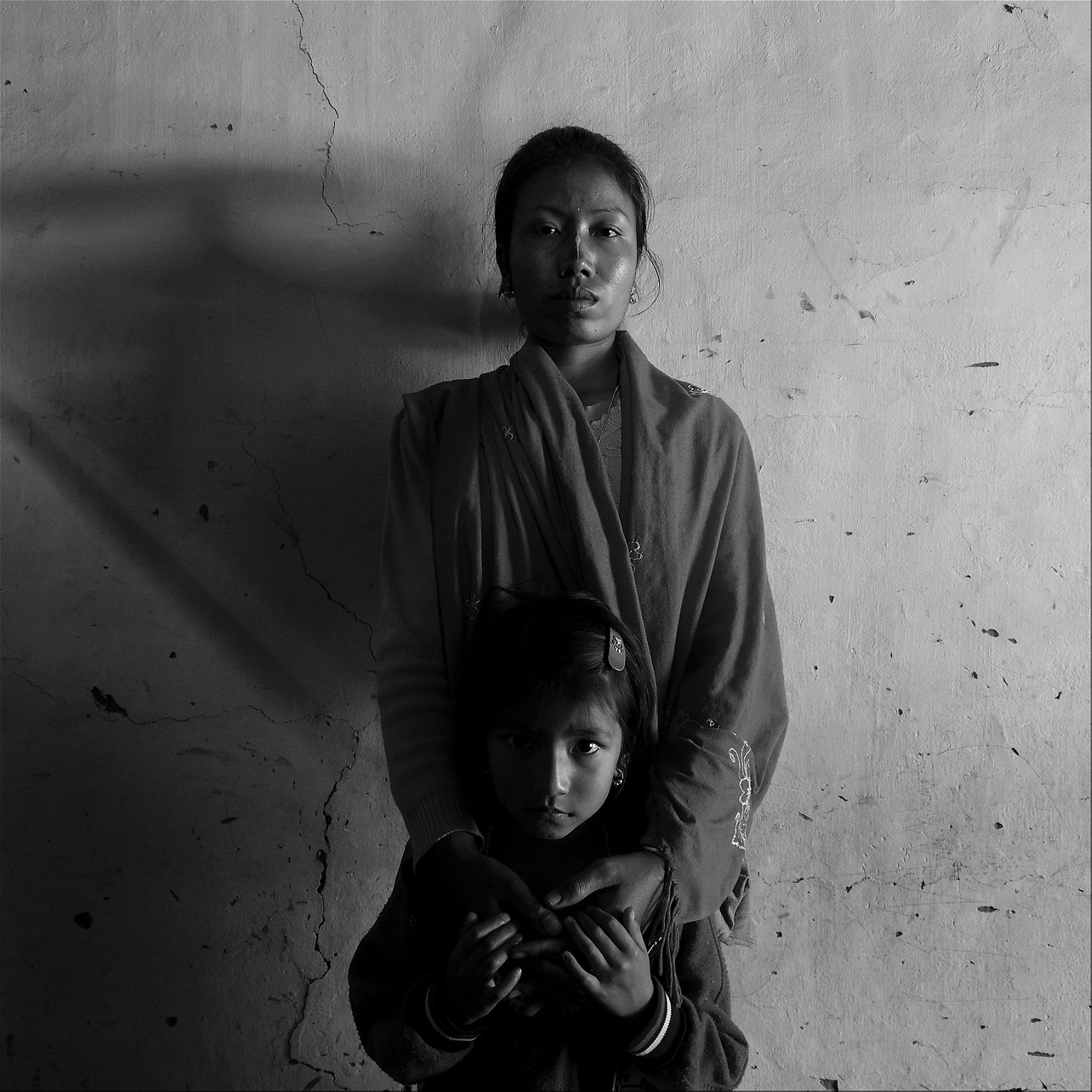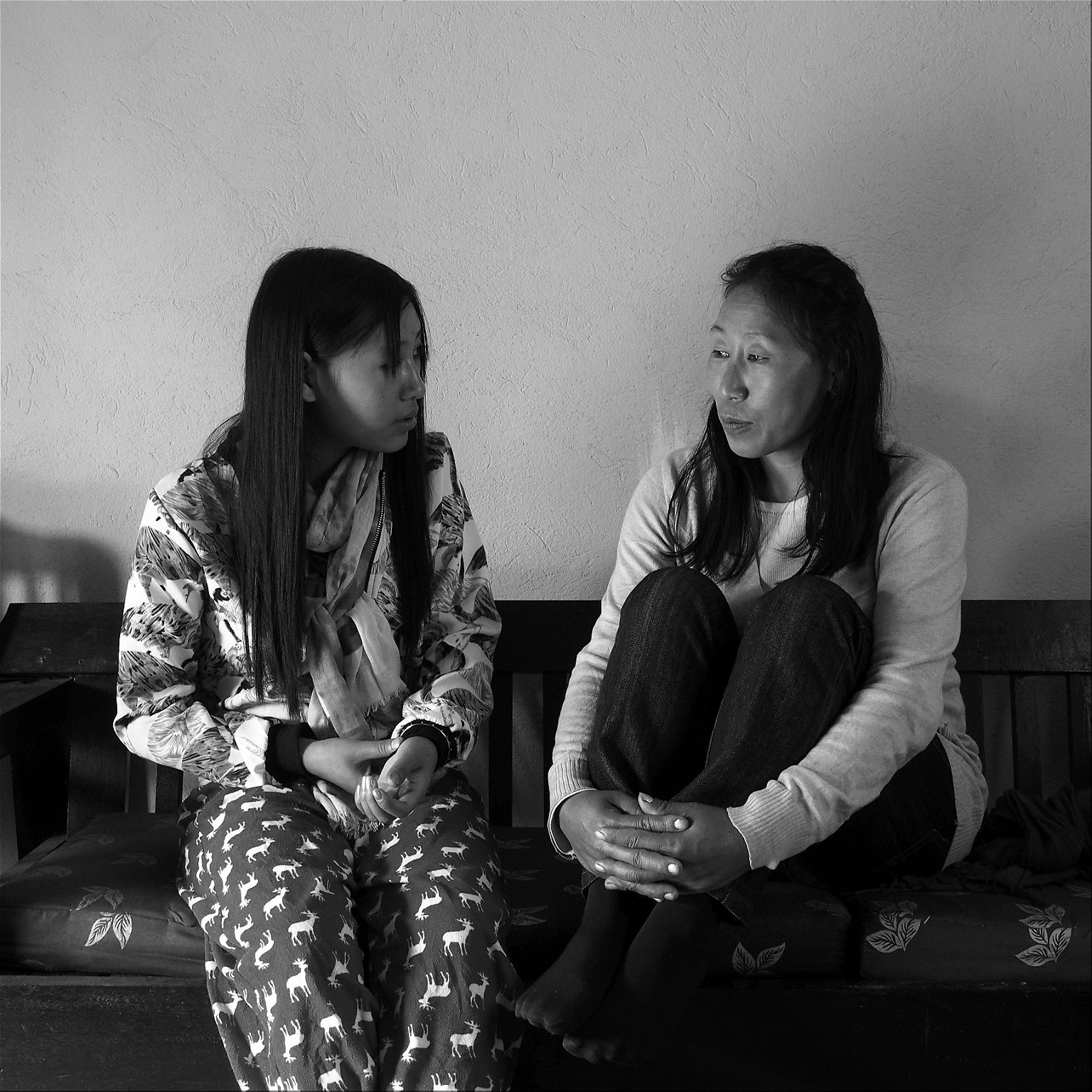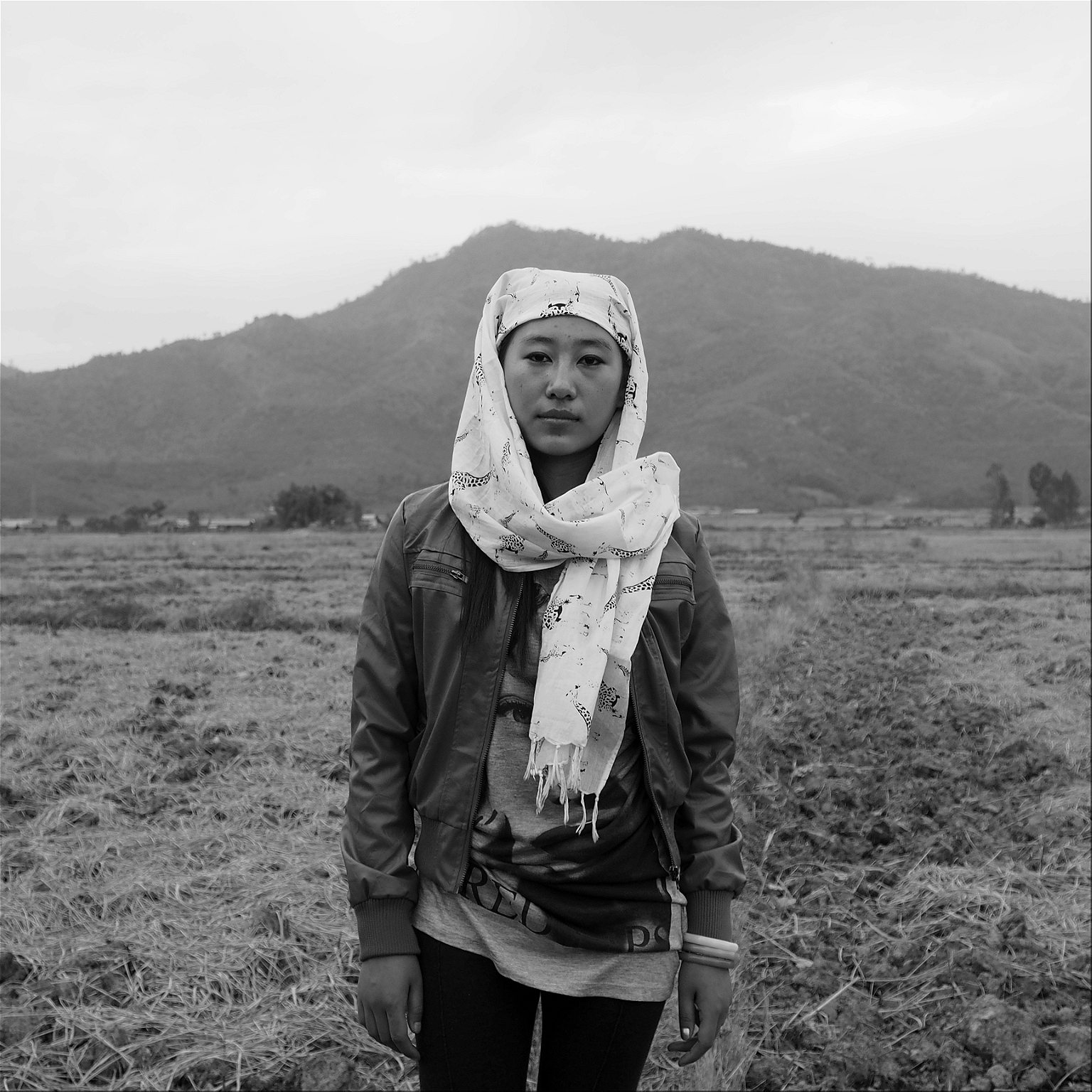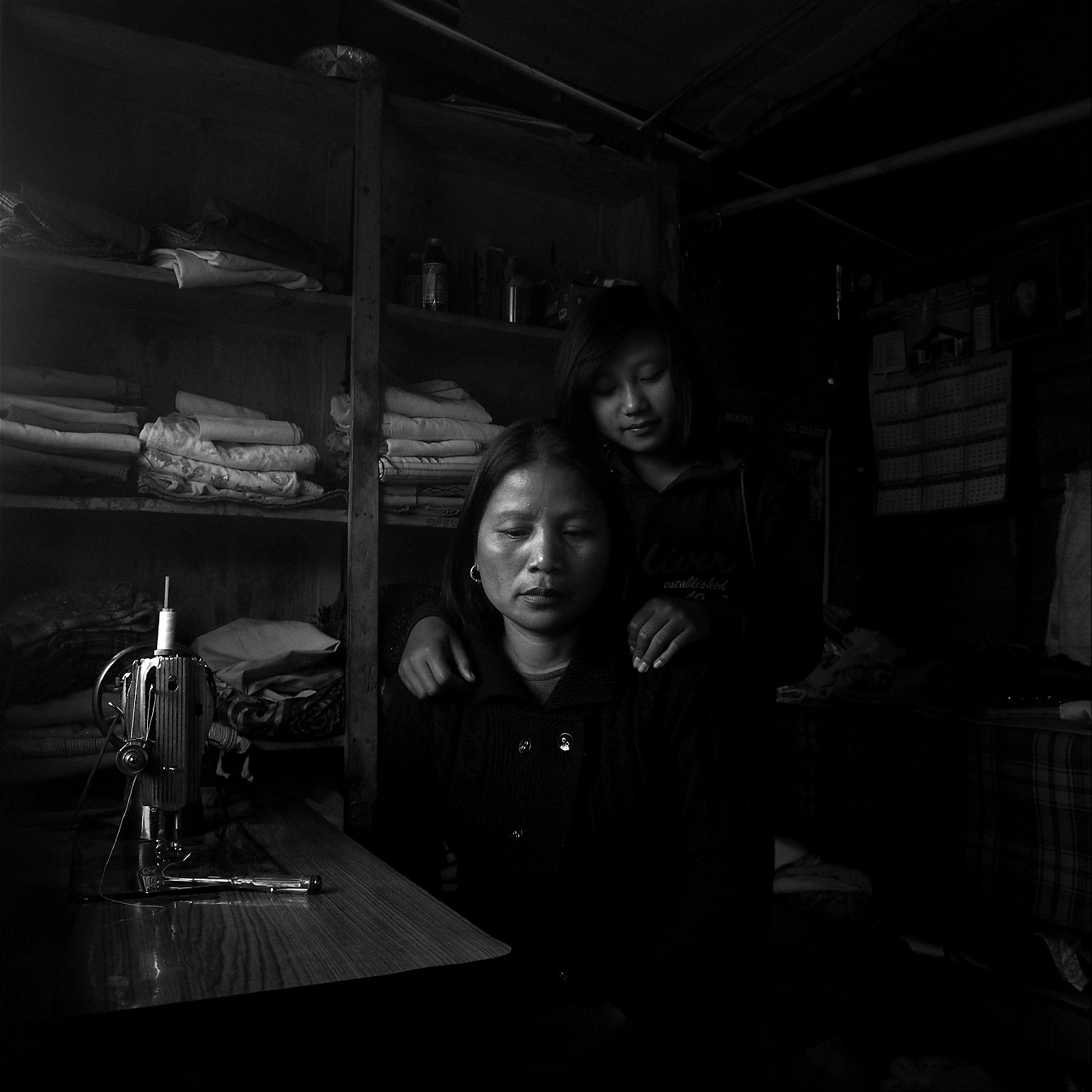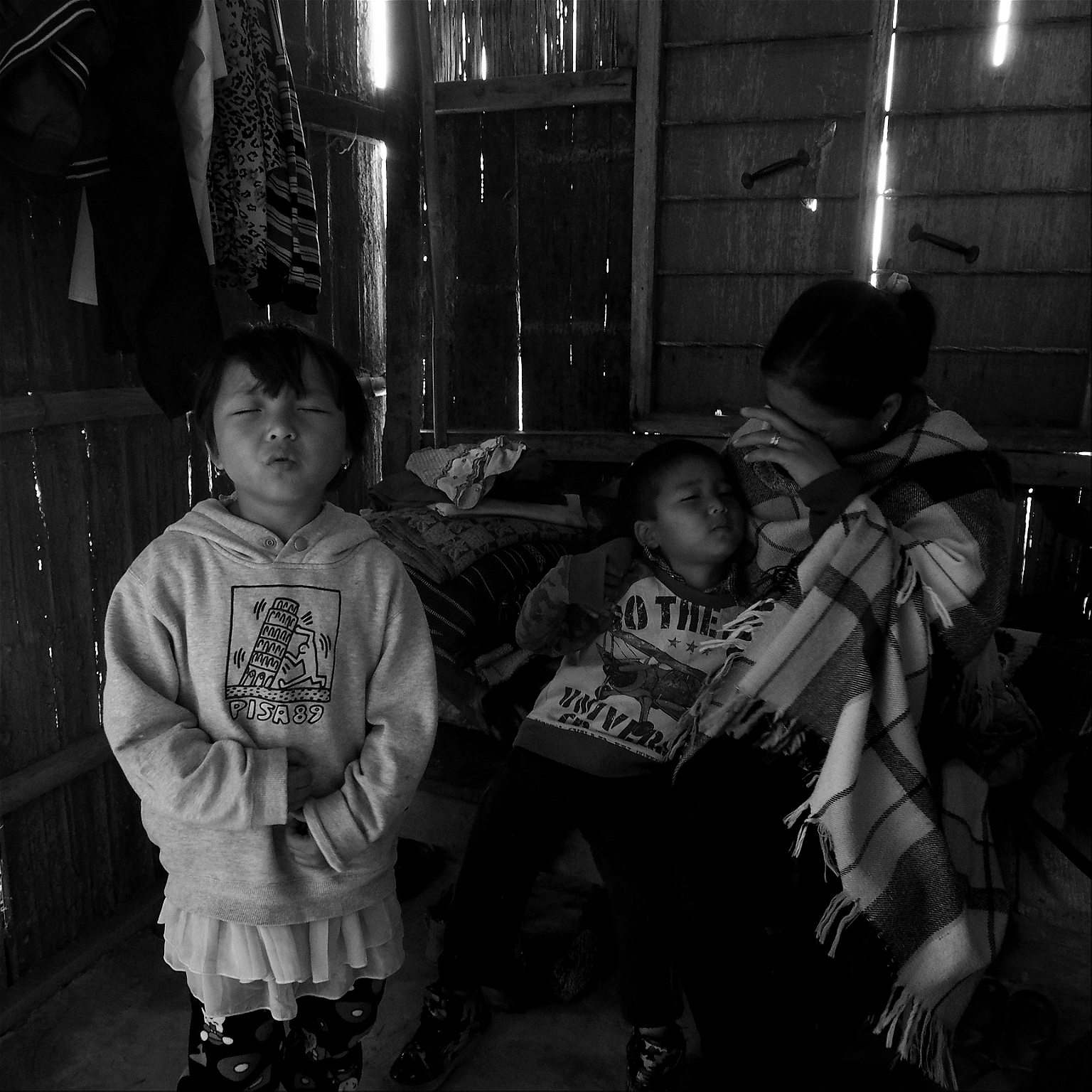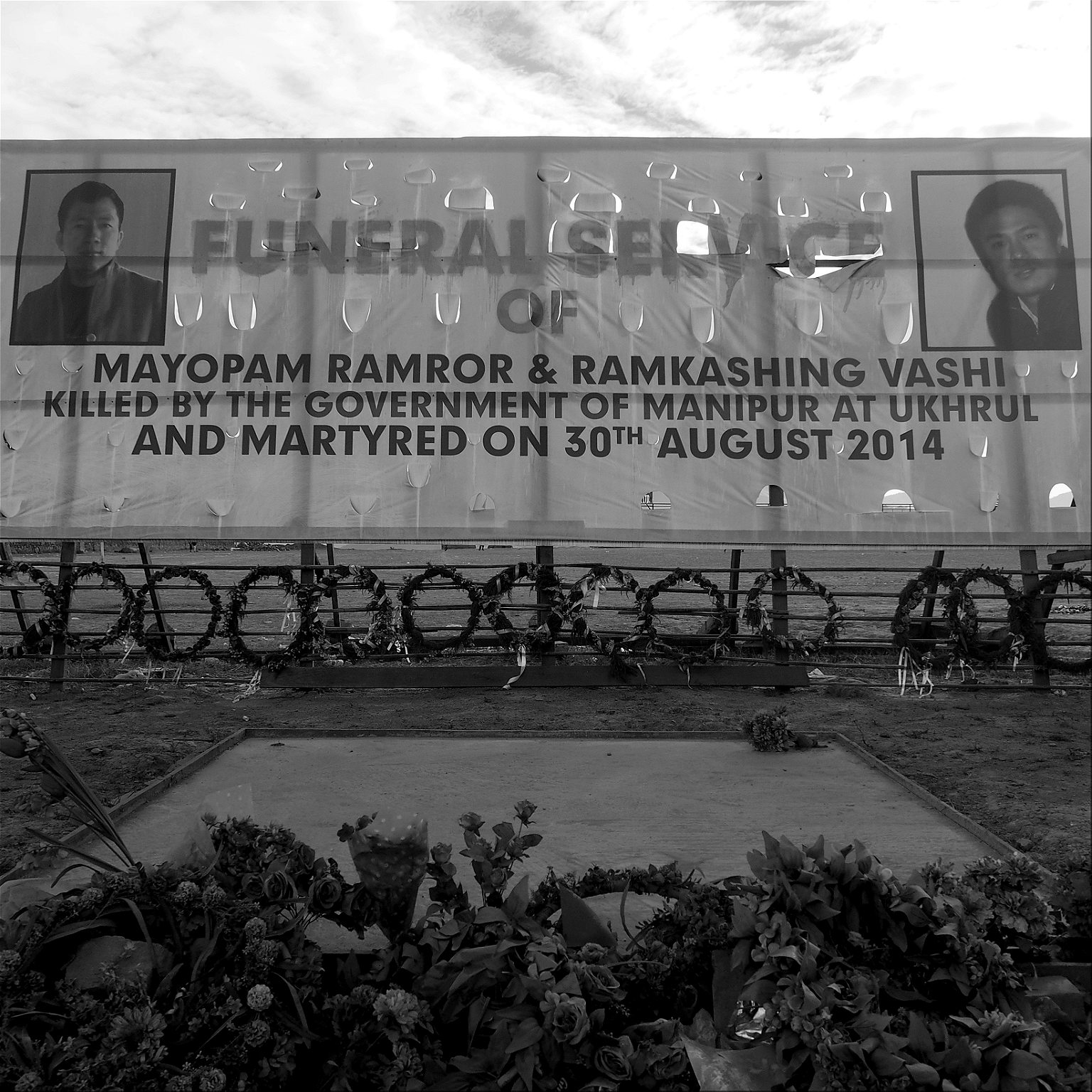In a remote state in northeastern India, a relatively unknown and complex insurgency is waging war on the women left behind.
I had taken an auto-rickshaw to reach Gangarani Devi’s address, which, despite her guidance over the phone, I had some difficulty locating. When I reached her house in a quiet neighborhood in the city of Imphal, I found the door locked. Minutes later, draped in a winter shawl and phanek, I saw her walking towards me with long strides, her hands held by her boys, ages 13 and 8. Because of her poor eyesight, she needs their help whenever she leaves the house.
Imphal is the capital of Manipur, a small, predominantly hilly and heavily militarized state in the northeast of India. Gangarani and I sat on low plastic stools on her small porch. Behind us, a framed photograph of her late husband Deban hung on the outer wall of her home. It was adorned with a white plastic garland and another one made from dried marigold, drained of its color. In the photograph, taken in 2005, Deban stands proudly in front of his taxi van. “Born on: 01-12-1973 Expired on: 07-03-2008″ reads the small print at the bottom.
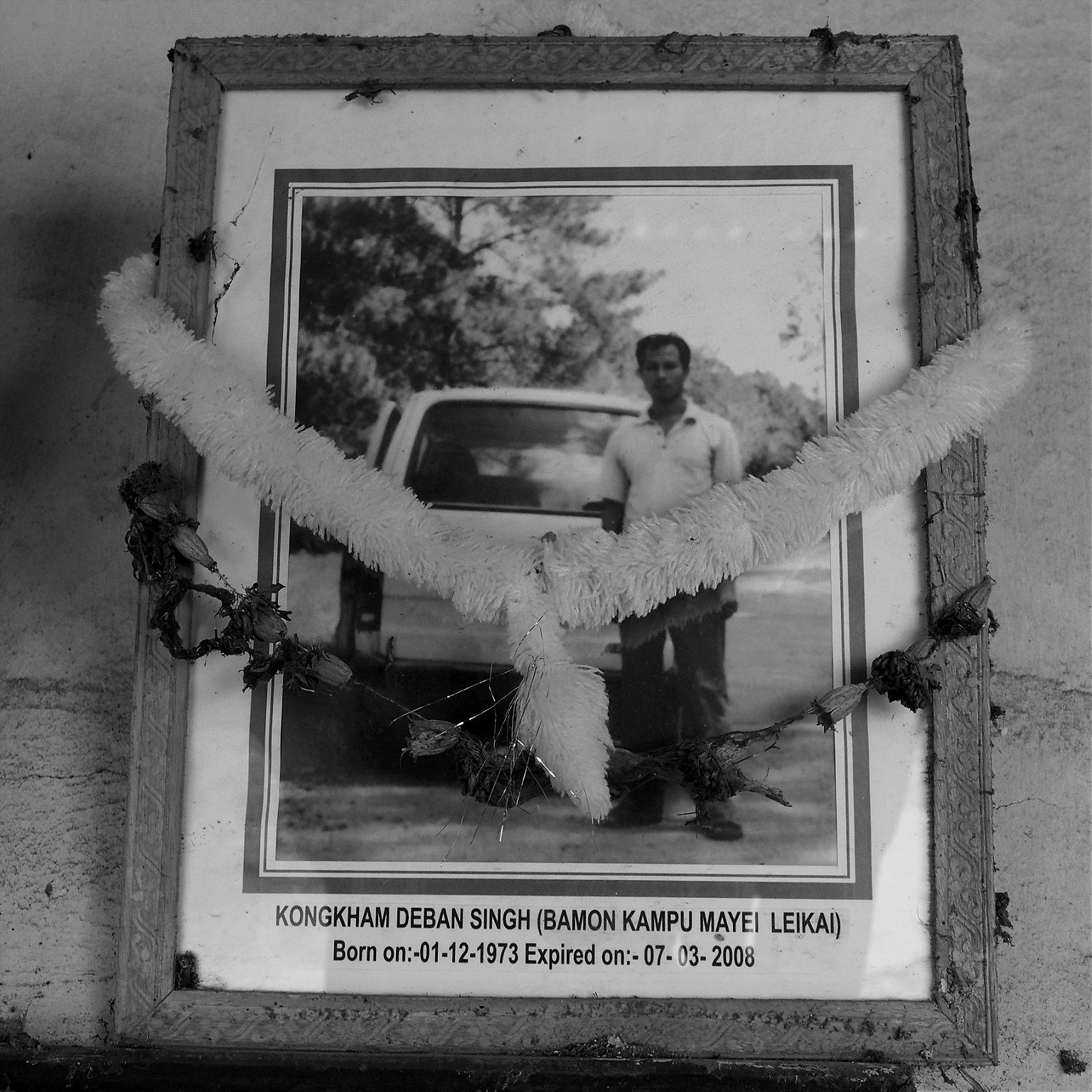
Gangarani is one of Manipur’s many widows. In 2008, her husband was hired as a driver for men he did not know were militants. The police claims that when they waived down the van at a checkpoint, shots were fired in their direction. They retaliated and everyone in the van was killed. According to Gangarani though, that’s not what happened. “The men were pulled out and killed. The commandos then fired on the van to ensure their version holds up,” she said.
Widows also face the harsh victimization of a traditional society
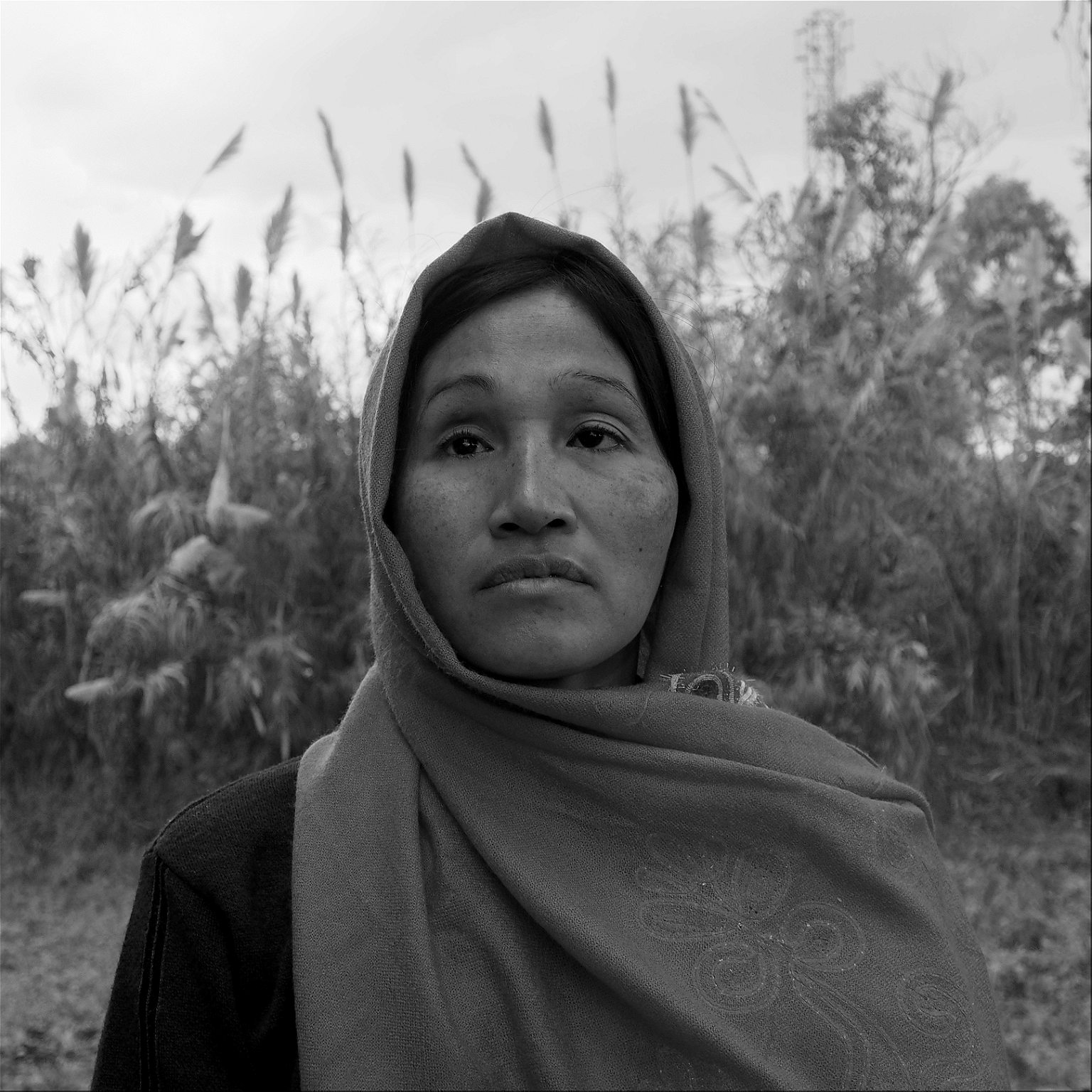
Manipur, a remote state in northeastern India, is the site of a relatively unknown and complex insurgency that has claimed the lives of over 20,000 people since the fifties. The year Gangarani’s husband was killed—2008—was an exceptionally violent one, with 485 recorded killings. Fatalities had been steadily declining, but just earlier this month, at least 20 Indian soldiers were killed in an ambush. It was the region’s deadliest attack in more than a decade.
Once a princely state of British India, Manipur is home to the Meiteis, the state’s largest ethnic group, who haven’t forgotten how their Maharaja was coerced to merge his kingdom in 1949 into a newly independent India. But the Meitei insurgent groups that took up arms in the late seventies resented not just New Delhi but also the Naga insurgents who wanted to carve away the hills of Manipur for their own extended homeland. The Nagas, in turn, ran afoul of the Kukis who stake a claim to those very hills. To this day, overlapping territorial claims by the three ethnic groups stand unresolved. Matters are made worse when violent confrontations break out within these generic groupings, resulting in an ever-multiplying number of ethnic militias, defined along ever-narrower identities.
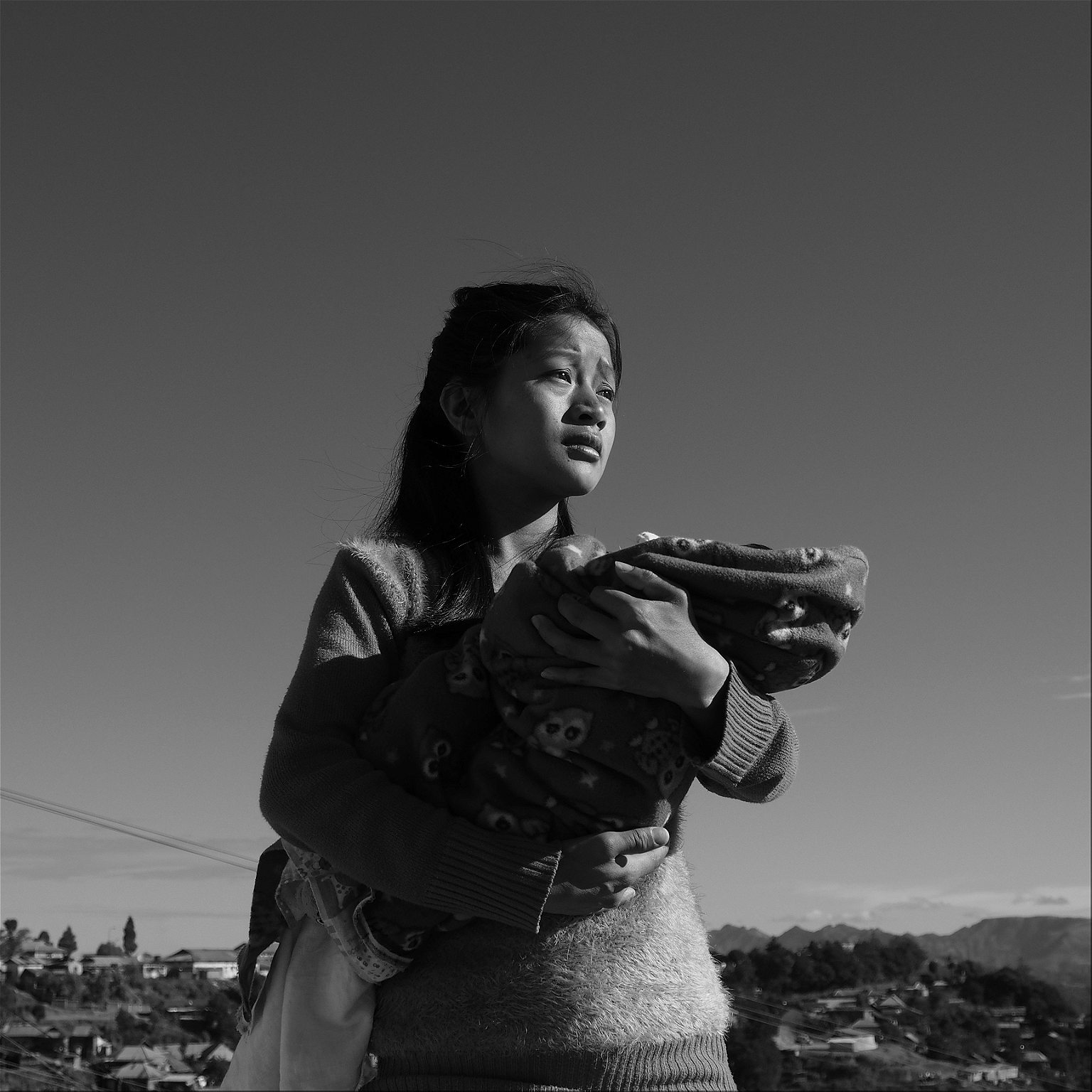
Arguably the worst victims in this dragging conflict, the widows of Manipur not only have to grieve and survive, but they also face the harsh victimization of a traditional society. One widow said she tried to commit suicide after being publicly beaten by her in-laws. “They called me all sorts of names… I thought my kids, as orphans, may be shown more mercy and treated better,” she said.
Having stayed with their in-laws since marriage, many widows are forced back to their maternal homes when their husbands die. Since their husbands were branded as militants, fairly or not, social security entitlements become out of reach. Many, like Gangarani, believe their husbands were victims of the draconian Armed Forces (Special Powers) Act that gives Indian armed forces sweeping shoot-to-kill powers and virtual immunity from prosecution. Because of this culture of impunity, monetary compensation for their loss is out of the question.
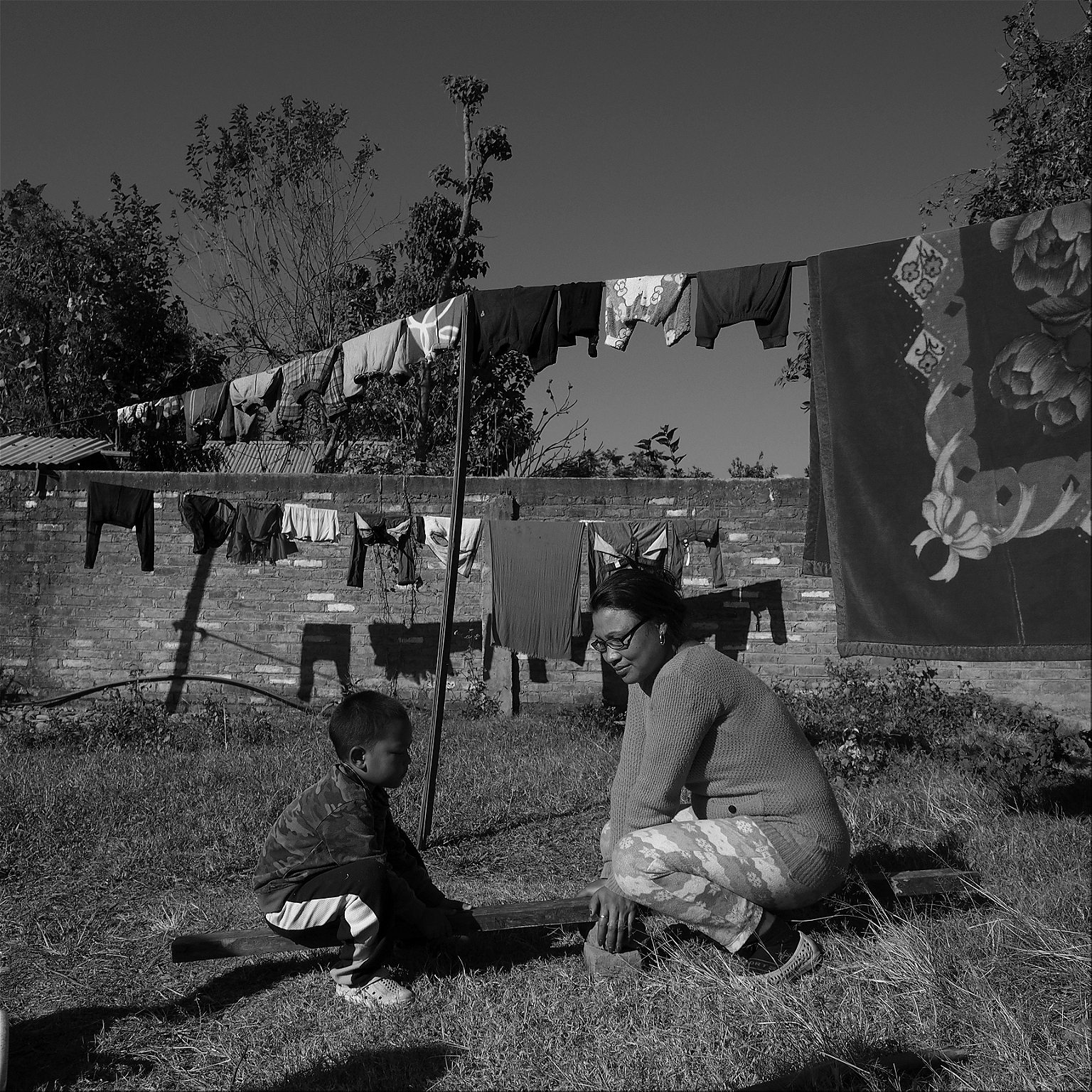
Simply stepping outside the house is a fraught task—along with predatory male attention comes chatter about who they meet and what time they return home. If a widow dresses in bright colors, many will assume she earns her living through sex work. Rumors can circulate quickly. “There is an expectation to act like a widow,” explained one of them. To stay quiet. To withdraw.
In this environment, the decision to even participate in a photo project like this is a bold statement, but a heartening one. It’s a sign that they don’t accept being victimized a second time for a war that was not theirs in the first place.
